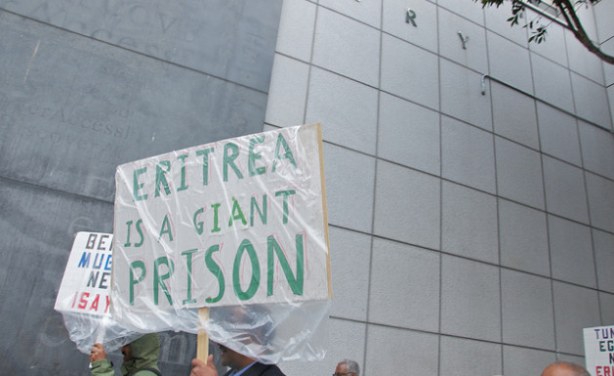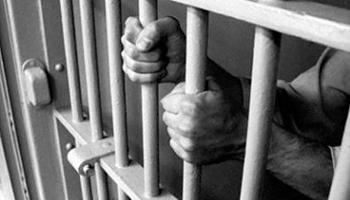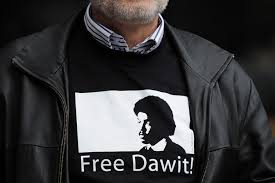Our Special Correspondent
Saba Makeda
Somewhere Inside Eritrea, 4 October 2013
Took me by surprise when I found out yesterday
I heard it through the grapevine not much longer will you be mine…………………[1]
When the Arab spring exploded in 2011/2012 many Eritreans as well as many members of the International community were asking if such movement would happen in Eritrea. Will Eritreans rebel? Will there be street marches against the regime in Eritrea?
 In reality young Eritreans have been protesting for years, by refusing to report for the military service and by leaving the country, in many cases with little support. According to the UN Eritreans are now leaving the country at the rate of 7,000 people every month. UNOCHA (Ethiopia) reports that more than 200 Eritreans cross the border every day. During the months of September and October (2014) over 3,450 Eritreans have fled into Northern Ethiopia taking the total of Eritrean refugees in Ethiopia to 104,000.
In reality young Eritreans have been protesting for years, by refusing to report for the military service and by leaving the country, in many cases with little support. According to the UN Eritreans are now leaving the country at the rate of 7,000 people every month. UNOCHA (Ethiopia) reports that more than 200 Eritreans cross the border every day. During the months of September and October (2014) over 3,450 Eritreans have fled into Northern Ethiopia taking the total of Eritrean refugees in Ethiopia to 104,000.
The increase in the number of Eritreans crossing into Ethiopia is very likely due increased hardships and tension within the country as well as the fact that in July 2014 Sudan , in contravention of the 1951 Refugee Convention and 2014 Sudanese Asylum Act (http://www.un.org/apps/news/story.asp?NewsID=48206#) forced Eritreans and other asylum seekers to return to their countries.
In Eritrea the Arab Spring inspired civil disobedience strengthening the “Enough “ campaign that started in 2004/2005 and evolved into the Arbi Harnet (Freedom Friday ) campaign. The Freedom Friday campaign links the diaspora based resistance to the in country resistance to the dictatorship in Eritrea. The Freedom Friday campaign calls all Eritreans to wake up to their rights and specifically to register their protest by civil disobedience and by removing their presence from public spaces such as city and town squares especially on Fridays. The campaign has overcome the fact that there is no independent media within Eritrea by adopting multiple strategies including: phone campaigns; distributing poster often disguised as a notices, using the Eritrean grapevine .
On 21 January 2013 approximately 100 mutineers took control of the Ministry of Information located Forte Baldissera an Italian Fort also known as known as Forto. Eritrean Television (Eri TV) broadcasts from the Forto. The mutineers forced the head of the state owned Eri – TV Mr Asmelash Abraha to read a communique “on air”. However no sooner had Mr Asmelash started reading that Eri TV signal was cut.
 The communique called for: (1) the implementation of the 1997 constitution, which has been suspended since 1998-2000 war against Ethiopia, (2) the release of political prisoners as well as (3) the release of those who were arrested while trying to flee the country.[2]
The communique called for: (1) the implementation of the 1997 constitution, which has been suspended since 1998-2000 war against Ethiopia, (2) the release of political prisoners as well as (3) the release of those who were arrested while trying to flee the country.[2]
The Forto incident became the focus of Arbi Harnet campaign as well the focus of protests by Eritrean organisations throughout the diaspora against President Isaias’s Regime. It was not enough the mutineers lead by Col Saleh Osman and two majors were arrested. Col Saleh Osman was not only a hero of the Eritrean Liberation Movement he was also responsible for the defence of the port of Assab during the Eritrea/Ethiopia war 1998-2000.
Soon after the Forto incident, a military Disciplinary Committee was established. The Disciplinary Committee was headed by General Manjus and Brigadier General Eyob Fessahay “Halibay” as the person in charge of coordination with the Office of the President. General Manjus has been implicated by the UN Somalia Eritrea Monitoring Group (S/2011/433 and S/2012/545) as the key figure in Eritrea’s weapons and human smuggling operations
 The Disciplinary Committee initiated a purge campaign resulting in the arrest of at least 800 people (http://webtv.un.org/search/sheila-b.-keetharuth-third-committee-32nd-meeting-69th-general-assembly/3864949861001?term=eritrea). Among the arrested:
The Disciplinary Committee initiated a purge campaign resulting in the arrest of at least 800 people (http://webtv.un.org/search/sheila-b.-keetharuth-third-committee-32nd-meeting-69th-general-assembly/3864949861001?term=eritrea). Among the arrested:
- Mr Ahmed Haj Ali Minister of Mines and Energy
- Mr Mustapha Nurhussein – Governor of Zoba Debub (Southern Zone)
- Mr Abdalla Jabar – Director of Organisational Affairs for the People’s Front for Democracy and Justice (PFDJ) the ruling party
- Mr Sulleiman Haj – Major of Mendefera city ( Zoba Debub – Southern Zone )
The indirect information available on the four Government officials is that Mr Mustapha Nurrhussein is dead (Eritrean websites, other personal communications), Mr Ahmend Haj Ali was released only to be rearrested. Mr Ahmed has been replaced as Minister of Mines and Energy by General Sebat Ephrem the former Minister of Defence. No information is available on the fate of Mr Abdalla Jabar, or Mr Sulleiman Haj. There is also no information as to the whereabouts of the Forto mutineers the exception is Col Osman Saleh who is reported as having committed suicide (Eritrea Somalia monitoring report 2013)
 As at the date of writing this article I was not able to positively ascertain who is the present Minister of Defence it is possible that Major General Philipos Woldeyohannes ,the chief of staff, is acting in this capacity. Adding to the uncertainty are reports that President Isaias is in the process of restructuring the army. The role that the Tigray People’s Democratic Movement (TPDM) also known as “Demhit” is likely to have in such restructure is cause for concern.
As at the date of writing this article I was not able to positively ascertain who is the present Minister of Defence it is possible that Major General Philipos Woldeyohannes ,the chief of staff, is acting in this capacity. Adding to the uncertainty are reports that President Isaias is in the process of restructuring the army. The role that the Tigray People’s Democratic Movement (TPDM) also known as “Demhit” is likely to have in such restructure is cause for concern.
Since October 2013, “Demhit” has featured prominently in the internal affairs of Eritrea. Members of Demhit are from the same group as the President and in the current climate are seen to be personally loyal to the President. The militia is functioning not only as an opposition group to Ethiopia but also as protector of President Isaias Afewerki’s regime.
Saba Makeda
makedasaba@ymail.com
(1 – comtinua)
[1] I heard it through the grapevine – Creedence Clearwater Revival
[2] Radio Erena, established in 2009 by a group of Eritrean exile journalist, with the support of Reporters without Borders was the first radio station to report the incident as it was unfolding
Here you can read the second article on the dossier Eritrea
The Dictator is in Crisis. Dissidents and Defections Increasing

